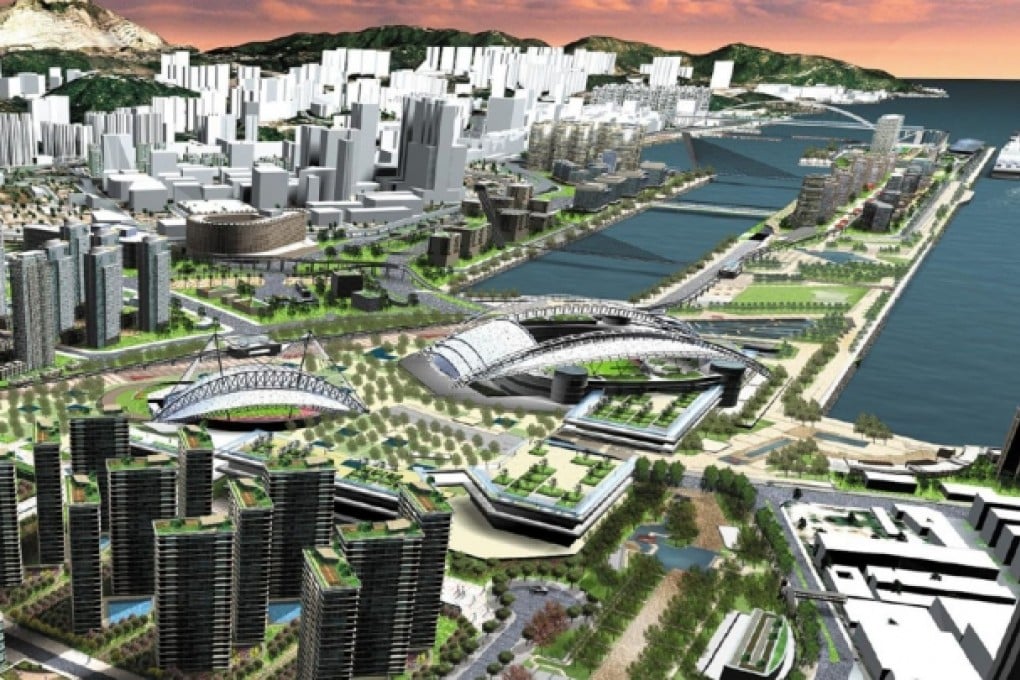Opinion | Hong Kong pays for procrastination
Any hopes the city might host Rugby World Cup games in 2019 dashed by delay in building Kai Tak sports hub

It will have taken Singapore 43 months to build its new sports hub when it officially opens next April. Even if it takes this long for Hong Kong to complete its own state-of-the-art venue, it is unlikely it will be ready for hosting a couple of matches of the 2019 Rugby World Cup in Japan.
It's raining when Jonathan McKinley, deputy secretary for Home Affairs, arrives in a cafe on the podium level of the government's office complex in Tamar. There is no cover from the lobby lift and he jokes that someone should have thought about this when planning was being done. It's just such planning and putting in place all the blocks which is delaying the start of construction on the Kai Tak sports complex. And those delays mean it is touch and go if it will be ready for when rugby's showcase is first staged in Asia. In the next four months, the government will have made a decision on the funding model for Kai Tak, says McKinley. It points to a partnership between government and the private sector. Yet, unlike the Singapore model where a private consortium has been contracted to build, operate and then transfer the hub after 25 years, Hong Kong is leaning more towards a partnership where the government takes the lead role in financing.
It is believed the government prefers to provide the major share up front so it doesn't have to pay massive interest later on. While the Singapore project will cost the equivalent of about HK$10 billion, the Hong Kong estimate in 2010 prices was HK$19 billion. That might rise to more than HK$20 billion as construction costs soar.
There are pros and cons for both models. The Singaporean way leaves the private consortium carrying all the risks initially. But if everything goes well, they stand to make a bucket load of money. The Hong Kong way will leave the government in control from the outset. The risk is whether the same sense of urgency will be there to complete the stadium, or if things will drag on, especially as there is the perception that sport comes last on the government's must-do list. McKinley insists that will not be the case, saying the target is to be on site in 2015 and for the project to be completed by 2019. So what happens from now until 2015 before the first brick can be laid? It will all be about finding the right partner, the people who have the vision to turn this hub into an entertainment mecca but at the same time also ensure the public is not shut out and is able to enjoy the facilities at affordable prices.
The Leisure and Cultural Services Department is the government arm which is usually in charge of sports and recreational facilities but it will be overlooked in favour of a professional outfit with links to the global entertainment and sporting industry to ensure the venue attracts headline acts, be it Beyonce or Brazilian football magic.
One act which is almost certain to miss the opening curtain call will be the Rugby World Cup. Three weeks ago, Japan unveiled its plans on how to select venues for the 2019 15-a-side extravaganza. There was no mention of Hong Kong despite the local governing body having made it clear it would love to host a couple of games.